
A bicycle-sharing system, bike share program, public bicycle scheme, or public bike share (PBS) scheme, is a shared transport service where bicycles are available for shared use by individuals at low cost.

Since the advent of the bicycle in the 1860s, Chicago has been distinguished as one of the premier cycling locations in the United States, with such public cycling destinations as Grant Park, Burnham Park and the Chicago Park District's Lakefront Trail.
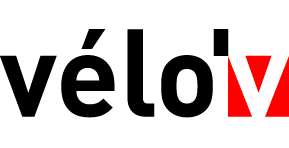
Vélo'v is a bicycle sharing system running in the city of Lyon, France, in conjunction with the advertising company JCDecaux. It has been the pioneer of smart bicycle-sharing systems, previous systems being more ad hoc and run similar to a charity. The relationship with JCDecaux allows the city to provide the service on a cost neutral basis for the city, and at a very low cost to users, in return for providing exclusive advertising access on bus shelters and the like. The primary aim is to reduce vehicle traffic within the city. The scheme also aims to reduce pollution, create a convivial atmosphere within the city, and encourage the health benefits of increased activity. Its name is a portmanteau of French vélo (bike) and English love. The first bicycle sharing system to open in France, after the pioneering 1974 scheme in La Rochelle, its thundering success inspired similar systems in major French and European cities, including Paris' Velib' in 2007. With the success of these two high profile smart bicycle sharing systems a new paradigm of government supporting bike sharing as a part of a public transportation network emerged. It is still the bike share scheme with the second-highest market penetration in the world, after the Velib'.

Stockholm City Bikes is the name of a public-private partnership project of Stockholm in Sweden and the outdoor advertising unit of Clear Channel Communications. From 2006 till 2018 they operated a community bicycle program that allowed for renting a bicycle for a maximum period of 3 hours, between 06:00 and 22:00.

Vélib' is a large-scale public bicycle sharing system in Paris, France. Launched on 15 July 2007, the system encompassed around 14,500 bicycles and 1,400 bicycle stations, located across Paris and in some surrounding municipalities, with an average daily ridership of 85,811 in 2011. The name Vélib' is a portmanteau of the French words vélo ("bicycle") and liberté ("freedom").

A bike rental or bike hire business rents out bicycles for short periods of time, usually for a few hours. Most rentals are provided by bike shops as a sideline to their main businesses of sales and service, but shops specialize in rentals.
Urbana is a travel card used on public transport services in Ljubljana, the capital of Slovenia. It is a credit-card sized plastic card on which the customer electronically loads money and/or passes. It was introduced to enhance the technology of the public transportation system and eliminate the burden of carrying and collecting tokens or cash.

BikeMi is a public bicycle sharing system in Milan, Italy. It was launched on 8 December 2008 and is contracted to and operated by Clear Channel on the basis of its SmartBike system. The scheme encompasses 4,650 bicycles and 325 stations.
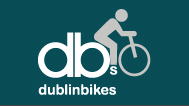
Dublinbikes is a public bicycle rental scheme which has operated in the city of Dublin since 2009. At its launch, the scheme, which is sponsored by JCDecaux, used 450 French-made unisex bicycles with 40 stations. By 2011, this had expanded to 550 bicycles and 44 stations, and in 2013 it was announced that a major expansion of the scheme would add a further 950 bikes and another 58 hire points. Dublin was the 17th city to implement such a scheme, and it was considered one of the most successful bike-sharing schemes in the world; however, in recent times, progress has stalled, with only 2 of 14 phases being rolled out. As of 2016 the scheme lost €376,000 a year, leading to further expansion of Dublin Bikes being put on hold.
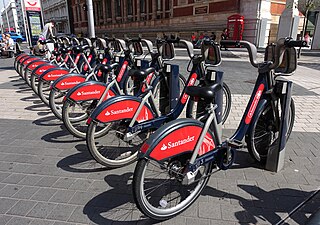
Santander Cycles is a public bicycle hire scheme in London in the United Kingdom. The scheme's bicycles are popularly and colloquially known as Boris Bikes, after Boris Johnson who was Mayor of London when the scheme began operating.
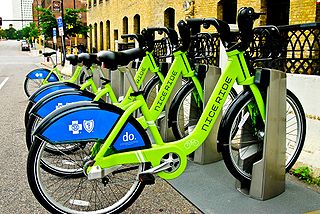
Nice Ride Minnesota was a seasonally operated nonprofit bicycle sharing system in Minneapolis and St. Paul, Minnesota based on the BIXI brand created by Public Bike System Company and first used in Montreal. Launched on June 10, 2010, it served over 10,000 trips in its first month and reached 100,817 rides in the first season of operation. The bicycles in the system are manufactured by Cycles Devinci. They are painted fluorescent green and include a cargo carrier and headlights. They receive daily maintenance, and are redistributed throughout the system via truck.
Bluebikes, originally Hubway, is a bicycle sharing system in the Boston metropolitan area. As of July 2021, the system had deployed 393 stations with a fleet of over 3,800 bikes in the 10 municipalities it served. Bluebikes is operated by Motivate and uses technology provided by 8D Technologies and PBSC Urban Solutions for equipment. The bike share program officially launched in Boston as Hubway. From 2012 to 2021, neighboring municipalities of Brookline, Cambridge, Somerville, Everett, Newton, Arlington, Chelsea, Watertown, and Salem joined the system. By 2020, total annual members neared 23,000, and as of 2021, 14 million total rides have been taken.
BIXI Montréal is a public bicycle sharing system serving Montréal, Quebec, Canada.

Bay Wheels is a regional public bicycle sharing system in California's San Francisco Bay Area. It is operated by Motivate in a partnership with the Metropolitan Transportation Commission and the Bay Area Air Quality Management District. Bay Wheels is the first regional and large-scale bicycle sharing system deployed in California and on the West Coast of the United States. It was established as Bay Area Bike Share in August 2013. As of January 2018, the Bay Wheels system had over 2,600 bicycles in 262 stations across San Francisco, East Bay and San Jose.

Healthy Ride is a public bicycle sharing system that serves parts of Pittsburgh. Operations started on May 31, 2015, with 50 stations and 500 bikes. The system is owned and operated by Pittsburgh Bike Share, a Pittsburgh-based 501c3, with bikes provided by Nextbike.
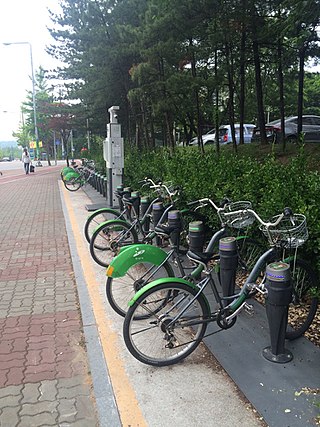
Public bicycle rental services are available in several cities across South Korea, each managed by their respective city governments. Bicycles can be used and paid for through an existing transportation card system or by mobile phone.

Mobi is the trade name of Vancouver Bike Share, Inc. a bicycle-sharing system in Vancouver, British Columbia, Canada. The system is administered by the city and is owned and operated by CycleHop. The system launched on July 20, 2016, with a limited number of stations and bicycles for founding members.

LinkBike is a public bicycle sharing system serving the city of George Town in Penang, Malaysia. Launched in 2016, it is the first such system in Malaysia. Currently, there are 250 LinkBike bicycles and 25 stations throughout the city, including its UNESCO World Heritage Site, as well as suburban places like Queensbay Mall.

oBike was a Singapore-registered stationless bicycle-sharing system started by businessmen Shi Yi and Edward Chen with operations in several countries. The bikes have a built-in Bluetooth lock and can therefore be left anywhere at the end of a journey, not just at a docking station. Users use a smartphone app to locate and rent bikes. It launched in Singapore in February 2017, and ceased operation on 25 June 2018 in Singapore. Subsequently, the parent company filed for insolvency in its home market. The effect on operations outside of Singapore is unknown.

















